
In one of the most celebrated fugitive slave cases in California, Archy Lee, a young black man who had been brought to the state from Mississippi, escaped and waged a successful legal battle for his freedom that went all the way to the federal courts.
In the fall of 1857, Charles Stovall arrived in Sacramento with Lee, who was about 19 at the time, and opened a school. He hired Lee out as a laborer, pocketing his wages. Though California was technically a “free” state, the law allowed visiting slaveholders to enter with slaves so long as they were not going to settle permanently. Lee fled when he learned Stovall was planning to return to the South. He hid out at Hackett House in Sacramento, a hotel owned by two African American men who were local abolitionist leaders. Soon Stovall hunted him down and had him arrested. The black community mobilized, holding church fundraisers that collected thousands of dollars to pay for Lee’s top legal defense. His attorney, prominent civil rights lawyer Edwin Crocker, argued that Stovall had violated California law because he had established residency and was not just passing through. He claimed Lee as “property,” worth $1,500, and insisted California authorities had to obey the federal fugitive slave law that sanctioned returning Lee to him. The judge ruled in favor of Lee’s freedom. But, in an ugly twist of fate, Stovall got the pro-slavery state supreme court to intervene and Archy Lee was immediately re-arrested. One of the justices was Peter Burnett, the former governor who had once tried to ban blacks from the state. Another was David Terry who, in the following year, would murder abolitionist David Broderick in a duel and later defend the confederacy in the Civil War. The court said that although Stovall had broken the law, they were making an exception for him due to his inexperience and poor health. Lee was ordered to return to Mississippi. The ruling provoked widespread outrage, rallying black people and their white anti-slavery allies. Stovall took Lee into hiding laying low until he could leave town. Free black people who suspected he would try to smuggle Lee out of town on a steamer, went on high alert, patrolling the San Francisco harbor. Just in time, a free black supporter got a judge’s order to have Stovall arrested for kidnapping. When he tried to sneak Lee aboard a ship preparing to leave the harbor, the police were there and arrested both men. A federal judge overturned the California Supreme Court ruling to keep Lee enslaved and set him free. Soon thereafter, Archy Lee joined an expedition of African Americans who left California and resettled in British Columbia.
From Peter Hardeman Burnett, in Court Ruling: It must be concluded that, where slavery exists, the right of property of the master in the slave must follow as a necessary incident. This right of property is recognized by the Constitution of the United States.
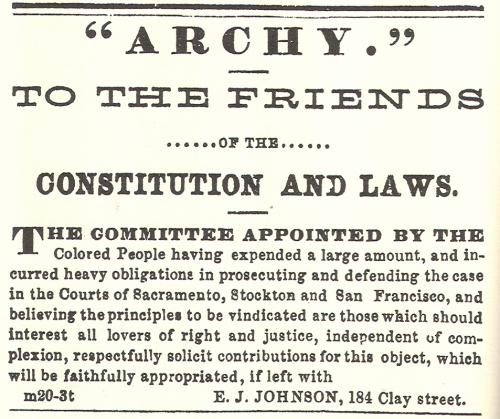
Archy Lee Advertisement, 1858
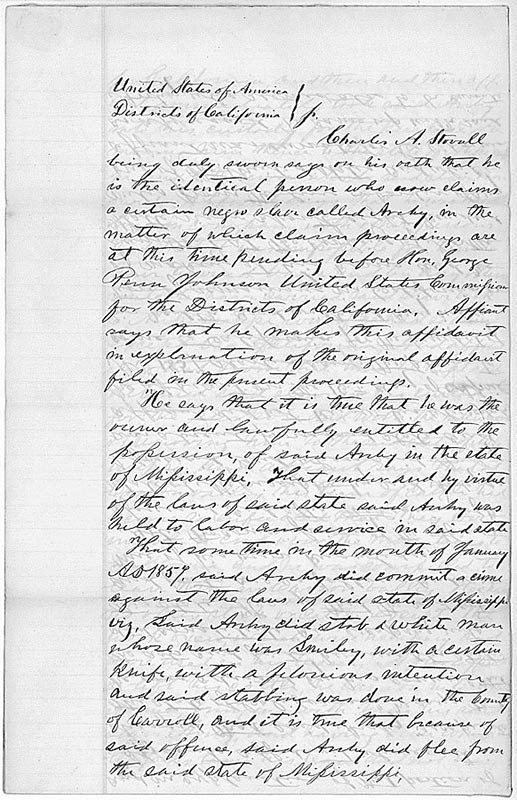
Affadavit of CA Stovall, filed March 29, 1858 (National Archives Identifier: 295965);
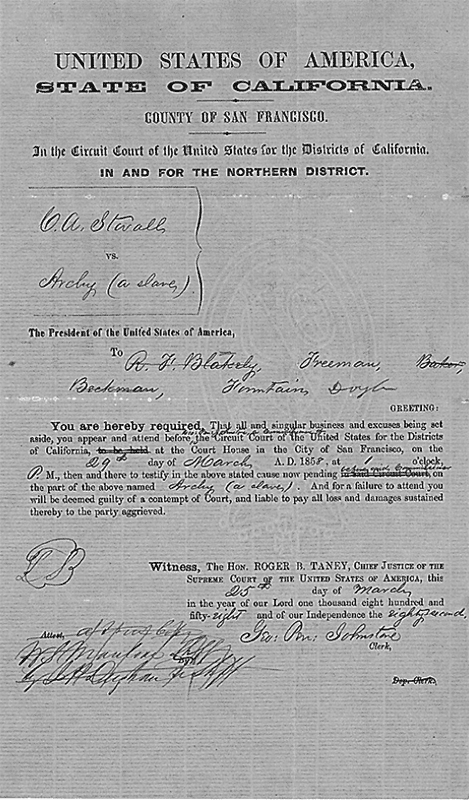
U.S. Circuit Court for the Northern District of California. (1886 - 1912); Records of District Courts of the United States, 1685 - 1991; Record Group 21; National Archives.
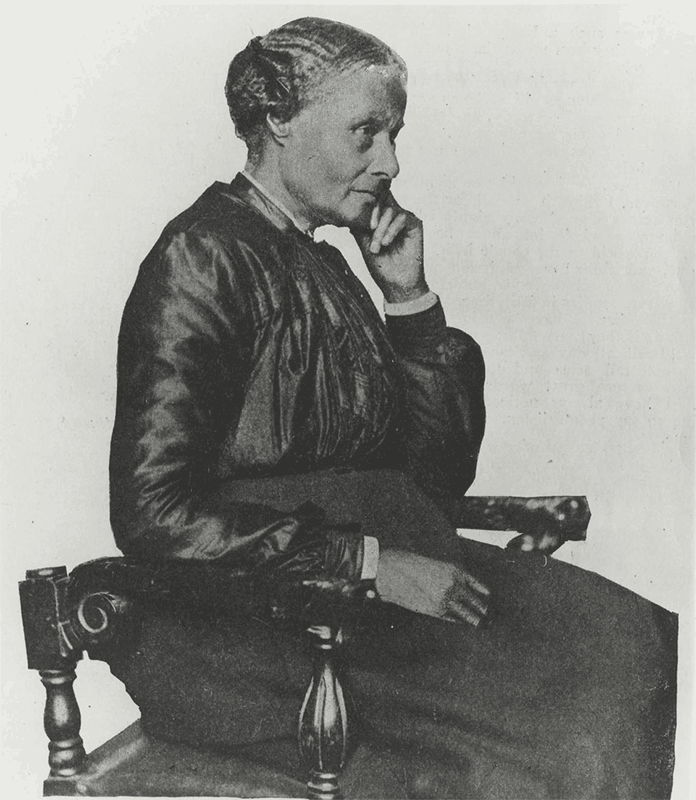
Mary Ellen Pleasant was a self-made millionaire and leading abolitionist based in San Francisco during the Gold-Rush era.
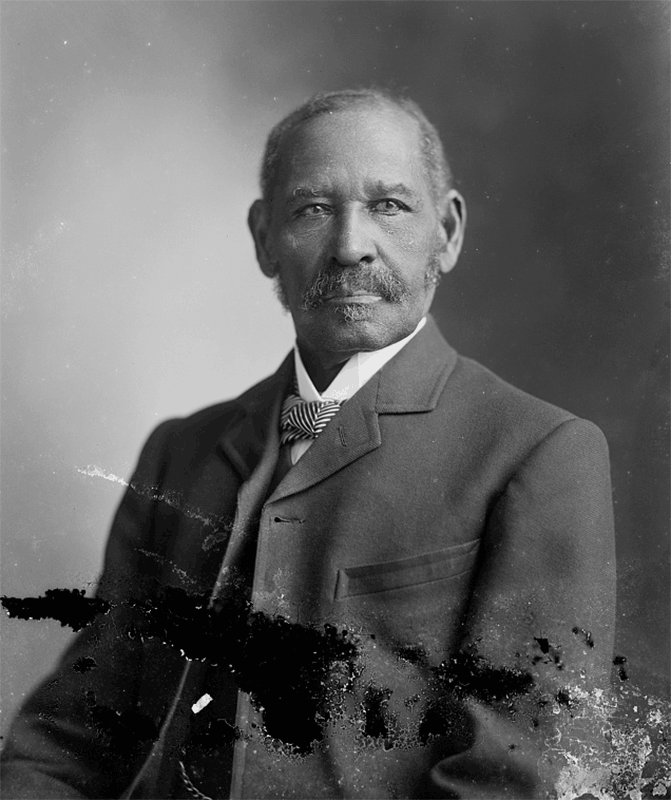
After waging a long battle against California’s anti-black laws, Mifflin Wistar Gibbs, a prominent civil rights activist and entrepreneur in San Francisco, helped lead a migration of several hundred African Americans to Victoria, British Columbia.
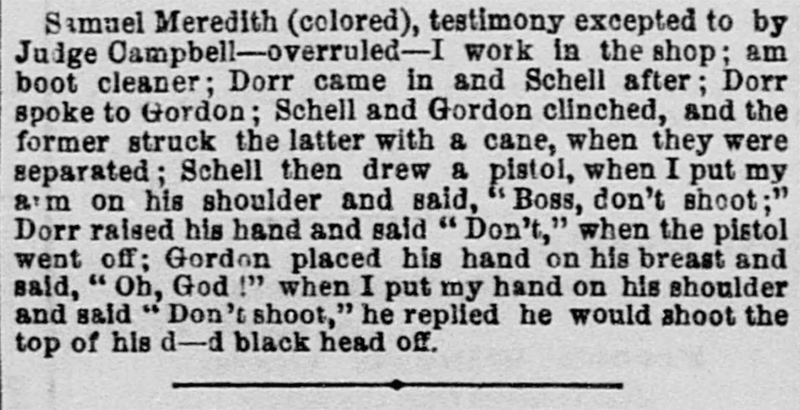
George Gordon, a black barber was shot to death by a white man in full view of witnesses in his San Francisco shop. A judge refused to allow the testimony of blacks because of their race. The killer got a lighter sentence as a result.
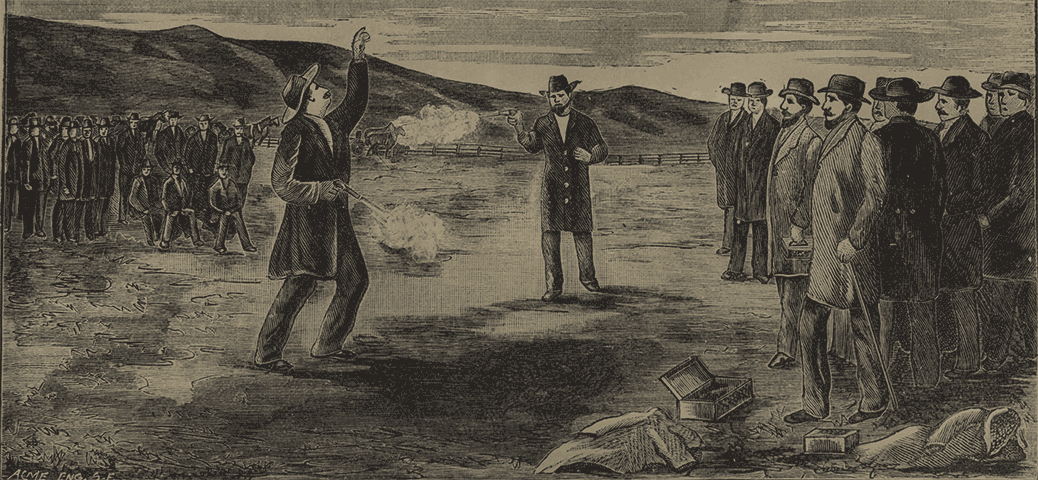
In 1859, an argument about the future of slavery in California led to a deadly duel between two prominent policians.
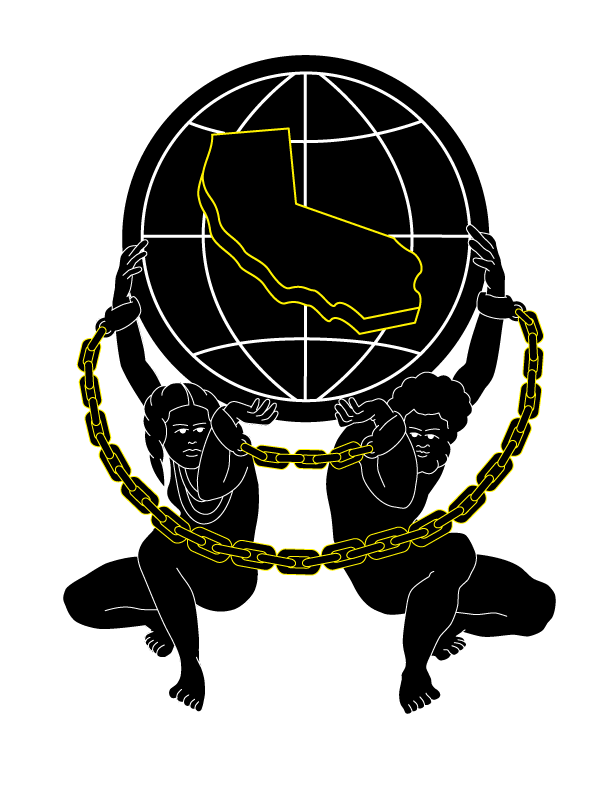
The mission of Gold Chains is to uncover the hidden history of slavery in California by lifting up the voices of courageous African American and Native American individuals who challenged their brutal treatment and demanded their civil rights, inspiring us with their ingenuity, resilience, and tenacity. We aim to expose the role of the courts, laws, and the tacit acceptance of white supremacy in sanctioning race-based violence and discrimination that continues into the present day. Through an unflinching examination of our collective past, we invite California to become truly aware and authentically enlightened.